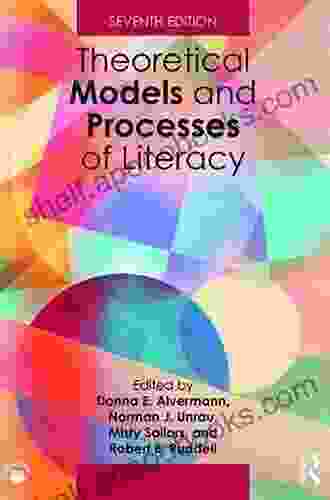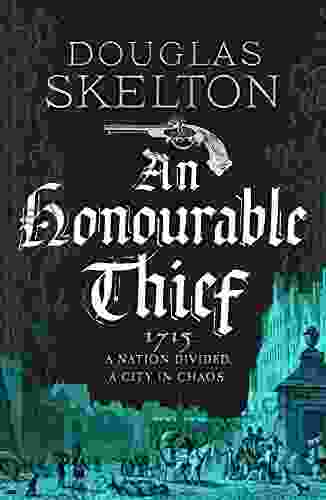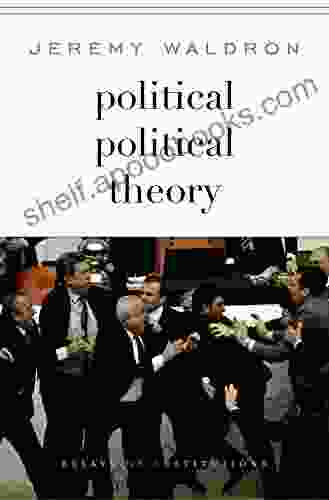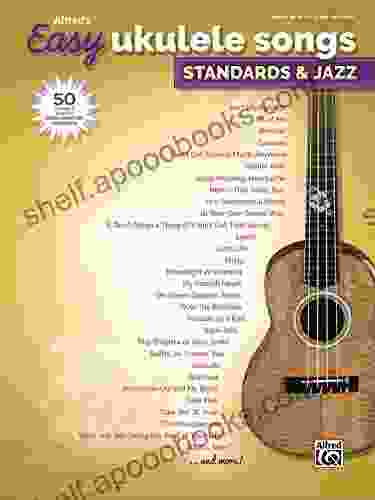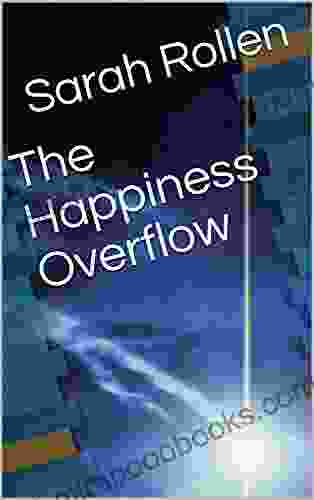Theoretical Models and Processes of Literacy: Unlocking the Secrets of Reading and Writing

4.5 out of 5
| Language | : | English |
| File size | : | 7852 KB |
| Text-to-Speech | : | Enabled |
| Enhanced typesetting | : | Enabled |
| Word Wise | : | Enabled |
| Screen Reader | : | Supported |
| Print length | : | 640 pages |
| Item Weight | : | 12 ounces |
| Dimensions | : | 10.12 x 7.17 x 0.79 inches |
Literacy, the ability to read and write, is a fundamental skill that plays a pivotal role in our personal, academic, and professional lives. Understanding the theoretical models and processes that underpin literacy development is crucial for educators, researchers, and parents alike. This comprehensive guide will provide an in-depth exploration of these models and processes, offering valuable insights into how we learn to read and write.
Theoretical Models of Literacy
Over the years, various theoretical models have been proposed to explain the complex process of literacy acquisition. Each model emphasizes different aspects of reading and writing, providing a unique lens through which to understand literacy development.
Cognitive Models
Cognitive models focus on the mental processes involved in reading and writing. They emphasize how readers construct meaning from text and how writers organize and express their thoughts in writing. Key cognitive models include:
- Interactive Model: Emphasizes the active role of the reader in constructing meaning from text, considering prior knowledge and context.
- Schema Theory: Suggests that readers use prior knowledge to create mental representations (schemas) that help them understand new information.
- Cognitive Theory: Focuses on the mental processes involved in writing, such as planning, drafting, revising, and editing.
Sociocultural Models
Sociocultural models emphasize the social and cultural influences on literacy development. They recognize that literacy is not simply an individual skill but a social practice that is shaped by the culture and context in which it is used. Key sociocultural models include:
- Social Constructivism: Views literacy as a social activity that is constructed through interactions with others.
- Cultural Literacy: Emphasizes the importance of understanding the cultural context of written texts to fully comprehend their meaning.
- Situated Learning: Focuses on the role of context and social interactions in literacy development.
Psycholinguistic Models
Psycholinguistic models bridge the gap between cognitive and sociocultural models. They focus on the relationship between language and cognition in reading and writing. Key psycholinguistic models include:
- Interactive Processing Model: Emphasizes the interaction between bottom-up (textual features) and top-down (reader's knowledge and expectations) processes in reading.
- Simple View of Reading: Proposes that reading comprehension is a product of decoding and language comprehension abilities.
- Writing Process Model: Describes the cognitive and linguistic processes involved in writing, emphasizing the recursive nature of writing (planning, drafting, revising, editing).
Processes of Literacy Development
Literacy development involves a complex interplay of cognitive, linguistic, and social processes. These processes occur in a sequential and overlapping manner, building upon each other to develop proficient reading and writing skills.
Early Literacy Skills
Early literacy skills lay the foundation for later reading and writing development. These skills include:
- Phonological Awareness: The ability to recognize and manipulate sounds in language.
- Print Awareness: Understanding the basic features of print, such as letters, words, and sentences.
- Vocabulary Development: Acquiring and understanding a range of words.
- Narrative Skills: Developing the ability to tell and understand stories.
Reading Development
Reading development involves the ability to decode and comprehend written text. Key processes include:
- Decoding: Translating written symbols into sounds.
- Word Recognition: Identifying and understanding words automatically.
- Reading Fluency: Reading smoothly and expressively.
- Reading Comprehension: Constructing meaning from written text.
Writing Development
Writing development involves the ability to express thoughts and ideas in written form. Key processes include:
- Planning: Generating and organizing ideas for writing.
- Drafting: Putting ideas into written form.
- Revising: Improving the content, organization, and style of writing.
- Editing: Correcting errors in grammar, spelling, and punctuation.
Literacy Assessment and Intervention
Literacy assessment is essential for identifying students' strengths and weaknesses and designing appropriate interventions. Effective literacy assessment should be:
- Comprehensive: Assessing all aspects of literacy, including reading, writing, and language skills.
- Continuous: Conducted throughout the learning process to monitor progress and identify areas for improvement.
- Diagnostic: Providing specific information about students' literacy abilities and challenges.
Literacy intervention involves providing targeted instruction to students who are struggling with reading or writing. Effective literacy interventions are:
- Evidence-based: Based on research that has demonstrated their effectiveness.
- Individualized: Tailored to the specific needs of each student.
- Multisensory: Engaging multiple senses (e.g., visual, auditory, kinesthetic) to enhance learning.
- Systematic: Implemented consistently and in a structured manner.
Understanding the theoretical models and processes of literacy is essential for educators, researchers, and parents alike. By delving into the cognitive, sociocultural, and psycholinguistic underpinnings of literacy, we gain valuable insights into how we learn to read and write. This knowledge empowers us to develop effective literacy instruction, assessment, and intervention strategies that support all learners in their literacy journey.
Literacy is a lifelong endeavor that opens doors to knowledge, personal growth, and societal participation. By embracing the theoretical models and processes outlined in this guide, we can foster a deep understanding and appreciation of literacy, empowering individuals to fully engage in the written word and its transformative power.
4.5 out of 5
| Language | : | English |
| File size | : | 7852 KB |
| Text-to-Speech | : | Enabled |
| Enhanced typesetting | : | Enabled |
| Word Wise | : | Enabled |
| Screen Reader | : | Supported |
| Print length | : | 640 pages |
| Item Weight | : | 12 ounces |
| Dimensions | : | 10.12 x 7.17 x 0.79 inches |
Do you want to contribute by writing guest posts on this blog?
Please contact us and send us a resume of previous articles that you have written.
 Book
Book Novel
Novel Page
Page Chapter
Chapter Text
Text Story
Story Genre
Genre Reader
Reader Library
Library Paperback
Paperback E-book
E-book Magazine
Magazine Newspaper
Newspaper Paragraph
Paragraph Sentence
Sentence Bookmark
Bookmark Shelf
Shelf Glossary
Glossary Bibliography
Bibliography Foreword
Foreword Preface
Preface Synopsis
Synopsis Annotation
Annotation Footnote
Footnote Manuscript
Manuscript Scroll
Scroll Codex
Codex Tome
Tome Bestseller
Bestseller Classics
Classics Library card
Library card Narrative
Narrative Biography
Biography Autobiography
Autobiography Memoir
Memoir Reference
Reference Encyclopedia
Encyclopedia Lauren Rowe
Lauren Rowe Donald T Critchlow
Donald T Critchlow Douglas Kennedy
Douglas Kennedy Kenny Dill
Kenny Dill Jeff Mcneish
Jeff Mcneish J L Oakley
J L Oakley Richard A Posner
Richard A Posner Die Kulinarischen Gaumenfreunde
Die Kulinarischen Gaumenfreunde Douglas Fisher
Douglas Fisher Stephen Allen
Stephen Allen Leo Black
Leo Black Richael Barger Anderson
Richael Barger Anderson Roy E Stolworthy
Roy E Stolworthy Leif Zern
Leif Zern Mario Pescatori
Mario Pescatori Doug Saunders
Doug Saunders Dr Binayak Sahu
Dr Binayak Sahu Kate Mcmullan
Kate Mcmullan Donna Sasse Wittmer
Donna Sasse Wittmer Don Delillo
Don Delillo
Light bulbAdvertise smarter! Our strategic ad space ensures maximum exposure. Reserve your spot today!
 John MiltonFollow ·15.2k
John MiltonFollow ·15.2k Gordon CoxFollow ·14.3k
Gordon CoxFollow ·14.3k Xavier BellFollow ·17.9k
Xavier BellFollow ·17.9k Jamie BellFollow ·19.1k
Jamie BellFollow ·19.1k Michael SimmonsFollow ·13.6k
Michael SimmonsFollow ·13.6k Vincent MitchellFollow ·9.2k
Vincent MitchellFollow ·9.2k Jerome BlairFollow ·9.5k
Jerome BlairFollow ·9.5k Phil FosterFollow ·9.4k
Phil FosterFollow ·9.4k
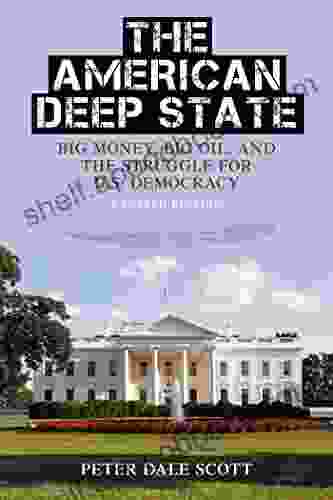
 Larry Reed
Larry ReedBig Money, Big Oil, and the Struggle for Democracy
By [Author's Name] In this...
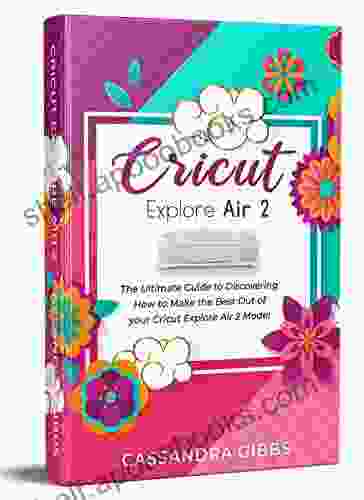
 Jackson Blair
Jackson BlairUnleash Your Creativity with The Ultimate Guide to Cricut...
Welcome to the extraordinary world of Cricut...
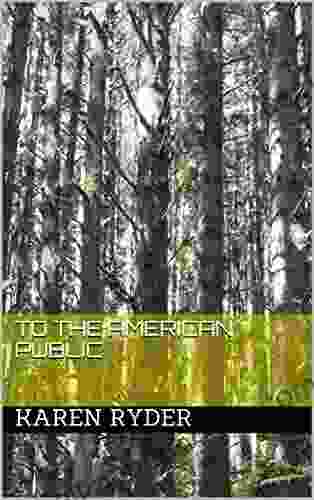
 Glen Powell
Glen PowellTo the American Public: Uncovering the Hidden Truths and...
An Incisive and Urgent Call to...

 Bryce Foster
Bryce FosterUltimate Guide to Starting a Mini Food Truck Business:...
: Embracing the Mobile Culinary...

 John Steinbeck
John SteinbeckHow To Make Different Styles Of Flute From Around The...
Embark on a...
4.5 out of 5
| Language | : | English |
| File size | : | 7852 KB |
| Text-to-Speech | : | Enabled |
| Enhanced typesetting | : | Enabled |
| Word Wise | : | Enabled |
| Screen Reader | : | Supported |
| Print length | : | 640 pages |
| Item Weight | : | 12 ounces |
| Dimensions | : | 10.12 x 7.17 x 0.79 inches |


